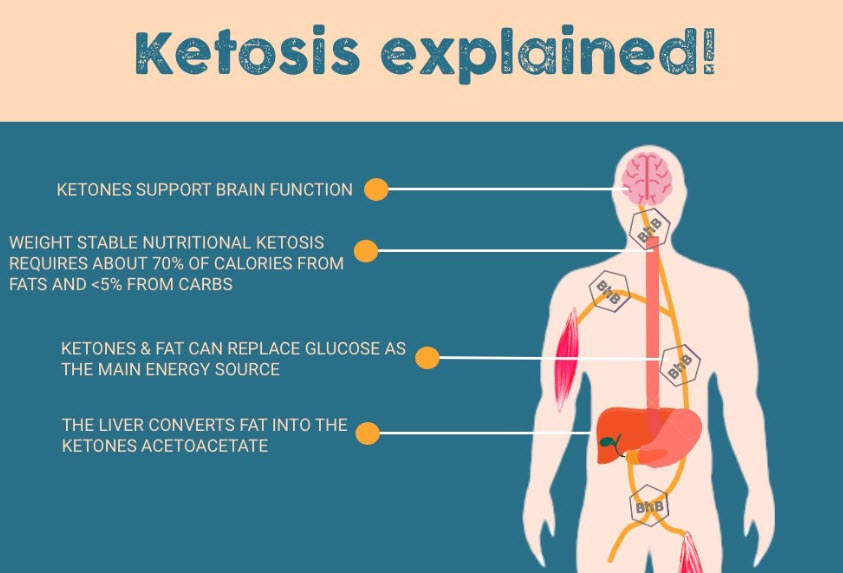
While intermittent fasting may help you lose weight, it can also impact your muscle mass. It's important to know the potential effects of intermittent fasting on your body so that you can choose a diet that will work for you.
Some studies show that fasting decreases lean muscle mass. This may make it more difficult to maintain a healthy body weight in the long run.
Potential Relationship Between Fasting and Muscle Loss
While intermittent fasting has been shown to be effective for weight loss, there's still some debate about the relationship between it and muscle loss. One possible reason for this is that the body's natural satiety hormone leptin gets turned off by the lack of food.
Another factor is that as your glycogen stores decline, your body can start looking for other energy sources. This is a process called gluconeogenesis, and it uses amino acids or fatty acids from fat tissue to make glucose.
This means that if you're looking to build or maintain muscle, it may be better to combine short-term intermittent fasting with an adequate amount of protein and resistance training. Adding exercise to a low-carb diet or a ketogenic diet has been shown to help preserve lean body mass and strength, while reducing fat.
How Can Intermittent Fasting Impact My Muscle Mass?
Intermittent fasting is one of the most popular weight loss strategies. It involves eating during an eight-hour window and fasting the rest of the day.
The diet can be done in a variety of ways and works best for people with specific health needs and schedules. It is most often used to lose fat, but it can also be helpful for gaining muscle.
To gain muscle on an intermittent fasting plan, it is important to consume adequate protein. You can get this from foods or dietary supplements (26).
While you’re on an intermittent fasting plan, you should avoid refined carbohydrates and replace them with natural protein sources. This will help your muscles grow and recover quickly. It is also a good idea to incorporate resistance training into your fasting routine.
What Can I Do to Prevent Muscle Loss?
If you want to maintain muscle, you need to eat a varied diet with enough protein and continue to train. You also need to ensure that you get a sufficient amount of sleep and avoid stress.
Resistance training is a great way to preserve muscle while on an intermittent fasting plan. It can increase your human growth hormone (HGH) levels and help you maintain lean body mass.
It can also reduce inflammation, which is an important factor in muscle loss.
To prevent muscle loss while on an intermittent fasting diet, you need to eat a nutrient-dense diet with enough protein and exercise. You can include a variety of different exercises in your routine, such as full-body workouts, weight lifting, and cardio.
However, you need to consider what you eat carefully while trying to cram your daily calorie intake into a small eating window. Eating a lot of high-calorie junk food will result in bulking up on fat instead of muscle.
What Can I Do to Maintain Muscle Mass?
Intermittent fasting has become a trend in the health world, with research showing that it can help you lose weight and retain muscle mass. However, it’s important to choose an intermittent fasting plan that suits your needs.
In the 5:2 diet, for example, you eat your standard daily calorie intake for five days of the week, then severely restrict your calories to 500-600 for two non-consecutive days. You can also try the 16/8 fasting protocol, which allows you to eat every day within an eight-hour window.
It can be difficult to cram all your protein and nutrients into a short window, so you should make sure to plan accordingly. It’s also a good idea to incorporate resistance training into your routine, as it has been shown to increase growth hormone production and improve muscle gain while fasting.
Quality sleep is also an essential part of any muscle-building regimen. It helps your body repair damaged tissue and rebuild muscle fibres.
Frequently Asked Questions
What is the most effective way to do intermittent fasting for weight loss?
Intermittent fasting can be described as a change in your eating style. It involves changing your eating habits to help you lose weight and shed fat. By regularly cycling between periods of eating and fasting, you can optimize how your metabolism works, potentially leading to better health outcomes.
But which intermittent fast patterns are the most effective when it comes specifically to weight loss? Depending on your goals and lifestyle needs, several different approaches may lead to success.
For people looking for a moderate lifestyle change, an approach known as 16:8 might be the best fit. This method involves fasting for 16 hours straight and then eating all of your meals within an 8-hours time window -- typically ending it with an early dinner or evening snack. This strategy is a great way to begin the weight loss/maintenance process without feeling overwhelmed.
For those who are looking for radical transformation, you might consider the 5:2 Intermittent fasting diet. This refers to fasting two days a week while consuming normal calories on the other five days. Non-fasting days should be used to consume nutrient dense foods, but not limit how many calories are allowed. With this intense pattern, discipline is key, so tracking macronutrients and understanding what fuel you need (and why) will help ensure that desired results are attained faster.
If you want to see the best results from Intermittent Fasting, consistency is important no matter what you do! Although one person may prefer strict adherence to IF, another person might be more successful when focusing on healthy eating whole foods.
Intermittent fasting can help you shed belly fat
The key to solving problems is to challenge the status quo. Traditional wisdom says that exercise and caloric restriction is essential for losing belly fat. Research has shown that intermittent fasting may be more efficient and effective than caloric restriction.
Intermittent eating means that food is only consumed within an 8-12-hour period each day. Between meals, there are 12-16 hours of fasting. You don't need to be concerned about portion control or counting calories during these fasting periods as you would with constant calorie restriction.
Intermittent fasting, if done correctly, can increase metabolism and burn stored fats faster than other long-term weight loss methods. Additionally, it can improve mental clarity and digestion, reduce inflammation, and reduce the risk for chronic diseases like type 2 diabetes.
It is also easy to practice intermittent fasting. Just set a timer for what you eat and stop eating until that timer goes off. Intermittent fasting provides a simple solution to belly fat reduction, as well as improved health outcomes.
Intermittent fasting can help to accelerate your weight loss journey. But you must still eat healthy foods, exercise enough and have regular eating windows. You should consult your doctor if you have any underlying conditions or are pregnant/ breastfeeding before changing to a diet.
What are some guidelines for intermittent fasting
Unravelling the secrets of intermittent fasting requires some understanding of the rules and regulations that make it work. This dietary practice focuses on limiting your caloric intake or meals to specific days or hours rather than daily.
Intermittent fasting is essentially a way to avoid eating for long periods. Then, you will have periods where you eat and then periods when your body stops eating. This can simply be calorie restriction that restricts calories to a certain time and day. A variety of health benefits can be attributed to intermittent fasting. These include increased energy, reduced inflammation, lower sugar levels, balanced bloodlipids, lucid sleep, and fat reduction.
However, fasting shouldn't be something you do without planning or guidance. It is best to establish the proper parameters before embarking on this journey in order to reap the many benefits. And while these rules differ somewhat depending on what version of the diet someone chooses (i.e., partial fasts versus complete fasts), here are some basic guidelines for intermittent fasting: choose a window in which you will eat each day; set specific meals that you will eat; choose foods with low glycemic index; keep hydrated; avoid snacking; exercise before instead after eating; cycle your fasting periods from one week to several weeks, and get plenty rest.
These tips will help to ensure that you have a successful experience with intermittent fasting.
What science says about intermittent fasting?
Researching science's knowledge of the benefits associated with intermittent fasting can lead scientists to make important discoveries in nutrition. Intermittent fasting means that you eat meals during a specified time and avoid eating for the remainder. Research shows that proper fasting can improve cognitive performance and metabolic health.
This requires us to examine what happens in our bodies when we fast intermittently. Intermittent fasting triggers a change in metabolism by decreasing sugar levels in the blood and encouraging cells to switch to fat as a primary energy source. This aids weight loss since it burns stored body fat instead of relying solely on recently eaten food. Additionally, this process encourages the utilization of glucose, which is important in protecting normal metabolic function.
Intermittent fasting is also being studied for its anti-aging potential. This could be due to increased autophagy*. Autophagy can be translated as "self-eating" in English and refers the essential cellular process by which unutilized or damaged proteins are recycled to preserve healthy cells. While there is still much to learn about this potential benefit, we are optimistic about what we know.
The evidence points towards positive impacts on overall health with intermittent fasting; however, consulting a physician before making any changes is always recommended. Healthy changes should be made slowly. You should aim for a healthy balance between activity and diet. It's worth speaking to an expert about how intermittent fasting might work for you.
What is the latest research on intermittent fasting for weight loss?
It is possible to discover amazing possibilities by exploring the benefits of intermittent fasting for weight loss. Study after study suggests that changing your eating habits throughout a day can improve overall health and weight management. Research shows that structured fasting can improve metabolism, reduce food cravings while also promoting fat burning and inflammation.
Intermittent fasting can be a very interesting concept. It is based upon several physiological processes and designed to improve health outcomes, as well as aid in weight loss. Recent studies have shown that intermittent fasting can improve insulin sensitivity, cell repair and hormone balance, as well a positive effect on bacterial populations.
These lifestyle adjustments are promising for those looking for a lifestyle change and an additional tool to aid in weight loss. People who are trying to achieve long-term goals can enjoy increased energy and mental clarity.
The evidence supporting positive hormone balance through fasting protocols is equally impressive. This prevents you from feeling deprived or too satisfied by indulgences. This allows for optimal caloric intake while maintaining physical activity program goals.
Building on the foundation of scientific research and conclusions related to intermittent fasting and its impact on sustained wellness goals makes it easy to establish a trusty plan of action that works!
What length of fast should I keep for intermittent fasting in order to lose weight?
Intermittent fasting for weight loss requires that you examine your motivations and set realistic goals. It is possible to lose weight fast by fasting for longer periods, but not everyone will like it.
It is important to establish how often and how much time you will fast in order to achieve your goals. How many hours or days can you commit per week? How many hours or days per week will you commit? This is dependent on your preferred routine - 16-hour daily "time-restricted eating" or anywhere from 1 to 7 days of water fasting. Also, factors like physical activity, health status, and overall wellbeing.
The most important thing is to listen to your body. Start by taking note of your hunger levels and energy levels throughout the day. Certain diets might be more restrictive than necessary for the individual's desired results. If you find that a particular diet is not working, don't be afraid to try other options.
If done properly, intermittent fasting provides more information about the body and allows for better focus on physical goals such as weight management. It integrates a practical framework that allows you to lead a healthy and happy life. We are forced out of our comfort zone, which motivates us towards our goals.
What foods can you not eat during intermittent fasting
When it comes to intermittent fasting, abstinence is key. Sticking with your plan requires you to cut out certain food groups that could sabotage your efforts.
Fasts can be made more successful by avoiding sugary foods, processed foods, or unhealthy snacks. Avoid sugary cereals and candy bars, icecream, and any other sweets, regardless of how difficult it might be.
Saturated fats should be left completely off the plate as well. Avoid eating fried foods, fatty cuts, and processed dairy products, such as cheese, heavy cream, and other processed foods. This will minimize the health risks associated with prolonged fasting. Any food items containing refined carbohydrates, like white bread or chips, should also be avoided while fasting.
Finally, alcohol should always be avoided during any fasting period - alcoholic beverages supply lots of empty calories that can inhibit the weight loss benefits associated with intermittent fasting. These guidelines will help you stay on track during your fasts if you are consistent and follow them strictly.
Statistics
- IF trials found weight loss of 0.8% to 13.0% of baseline weight with no serious adverse events. (ncbi.nlm.nih.gov)
- Fat consumption was examined in 1 study, which compared dietary fat intake of 45% versus 25% at the expense of carbohydrate intake. (ncbi.nlm.nih.gov)
- IF participants) IF resulted in weight loss, ranging from 0.8% to 13.0% of baseline body weight (Table 1). (ncbi.nlm.nih.gov)
- When diet composition was controlled, most protocols were consistent with Health Canada and American Heart Association guidelines: 55% carbohydrates, 20% fat, and 25% protein. (ncbi.nlm.nih.gov)
External Links
academic.oup.com
- Oxford Academic
- The Effect of an Intermittent Calorie Restricted Diet on Type II Diabetes Remission: A Randomized Controlled Study
doi.org
- Free Full Text
- 24-Hour Fasting in Diabetes: A guide for physicians advising patients regarding medication adjustments prior religious observances (or other outpatient surgical procedures). Grajower – 2011, Diabetes/Metabolism Research & Reviews – Wiley Online Library
ncbi.nlm.nih.gov
- Intermittent energy restriction improves weight loss efficiency in obese men: the MATADOR study - PubMed
- INTERMITTENT FASTING AND HUMAN METABOLIC HEALTH - PMC
annualreviews.org
How To
Intermittent fasting right for me? Factors to Be Consider
Even though you have heard the best advice, it can be daunting to contemplate intermittent fasting. It's crucial to examine all factors of intermittent fasting to discover what works best for you.
First, it is crucial to understand what intermittent fasting means. It involves reducing the amount of calories you consume on certain days. This does not mean you have to stop eating food. It is about timing and selecting the right meals to reduce calories and meet your nutritional needs. This can be combined with healthy nutrition and exercise to provide some significant health benefits.
When making decisions about intermittent fasting, lifestyle is a major consideration. One must consider their goals, time frame, and commitments to figure out whether they have time to commit to learning about how way adjust their lifestyle as necessary for optimal results. It's important to assess your current capabilities. Will a change in eating habits negatively impact or interfere with your ability to do the same?
Before starting a cycle, it is important to consider the type of fast you are using. Some examples include alternate-day fasting (500-600 calories twice per week), 5:2: 500-600 calories twice a week, and continuous Energy Restriction (25-50%). This reduces your daily calorie intake by approximately 25%-50%. It could be one large meal, or several smaller meals per day depending on how busy one is. Consultation with a primary physician or registered dietitian is recommended before you begin intermittent fasting.
Intermittent fasting can help you improve your health and lose weight. But it's important that you understand all the factors that affect whether it's right to do it. Before starting, you should think about your lifestyle, goals, and other commitments. For personalized advice, consult with a registered Dietitian or primary physician. You can achieve your health goals with the right planning.
Resources:
 |
How To Do Intermittent Fasting For Health - Dr Sten Ekberg Wellness For LifeHow To Do Intermittent Fasting For Health and Long Lasting Weight Loss. Learn what is intermittent fasting and how to do it without feeling hungry. You will |
 |
What are BENEFITS of Intermittent Fasting?Some research suggests that intermittent fasting may be more beneficial than other diets for reducing inflammation and improving conditions associated with |
 |
[Doctorly Unhinged - EP1] Ozempic Woes, DEBUNKING Intermittent Fasting, and the DANGERS of ManicuresSUBSCRIBE TO OUR PODCAST! https://doctorly.podlink.to/unhinged Is this trending medication that’s been touted to cause dramatic weight loss changing |
 |
The Good Life: Intermittent fasting: Ideal for weight loss?We decode the hype around one of the most popular eating methods for weight loss. Is intermittent fasting for everyone? #thegoodlife #intermittentfasting |
 |
Intermittent Fasting For Weight LossWeight loss with Ketosis |
 |
Intermittent Fasting: A Two-Month Experiment. Does It Work? | Talking Point | Full EpisodeAfter drinking sugar-laden bubble tea three times a week for a month for an earlier Talking Point episode, host Steve Chia is ready to lose the weight he |
 |
Intermittent Fasting May Have Health Benefits Beyond Weight Loss | TODAYAccording to an article in the New England Journal of Medicine, new evidence suggests that intermittent fasting could provide many health benefits beyond |
 |
Don’t know whether to cut or bulkDon’t know whether to cut or bulk |
 |
What’s your favorite way to eat chicken?What’s your favorite way to eat chicken? |
 |
Intermittent Fasting For Pregnant WomenWhile intermittent fasting for pregnancy has its benefits, it can also be dangerous. Read on to learn more about the risks and benefits of.. |
 |
Intermittent Fasting TESTED - 30 Day Before & AfterGo to https://NordVPN.com/goalguys and use code GOALGUYS to get a 2-year plan plus 1 additional month with a huge discount. It’s risk-free with Nord’s 30-day |
 |
Intermittent Fasting and Low-Carb DietIf you want to lose weight, try combining intermittent fasting with a low-carb diet. Both methods help you lose fat and control health conditions... |
 |
Intermittent Fasting Guide for 2022 | Doctor Mike HansenIntermittent Fasting Guide for 2022 | Doctor Mike Hansen Did you know that it's been predicted that by 2030, more than half of the U.S population will be |
 |
How to do Intermittent Fasting: Complete GuideJoin my Email List: https://www.thomasdelauer.com Check out Thrive Market: http://ThriveMarket.com/Thomas Follow More of My […] |
 |
How Autophagy WorksAutophagy is a dynamic degradation system that promotes tumor survival. It also promotes the growth of established tumors and facilitates metastasis. .. |
 |
Intermittent Fasting Myths - Top 5 | Jason FungI cover the most important myths about intermittent fasting and why they are not true. Check out my website at https://www.doctorjasonfung.com and blog at |
 |
Intermittent Fasting 8/16You may have heard of the intermittent fasting 8/16 or 12/12 time restriction. This type of fast requires you to go without eating or drinking for.. |
 |
Intermittent Fasting For WomenSide effectsWomen who are looking for a way to lose weight can try intermittent fasting. However, there are several side effects to this type of.. |
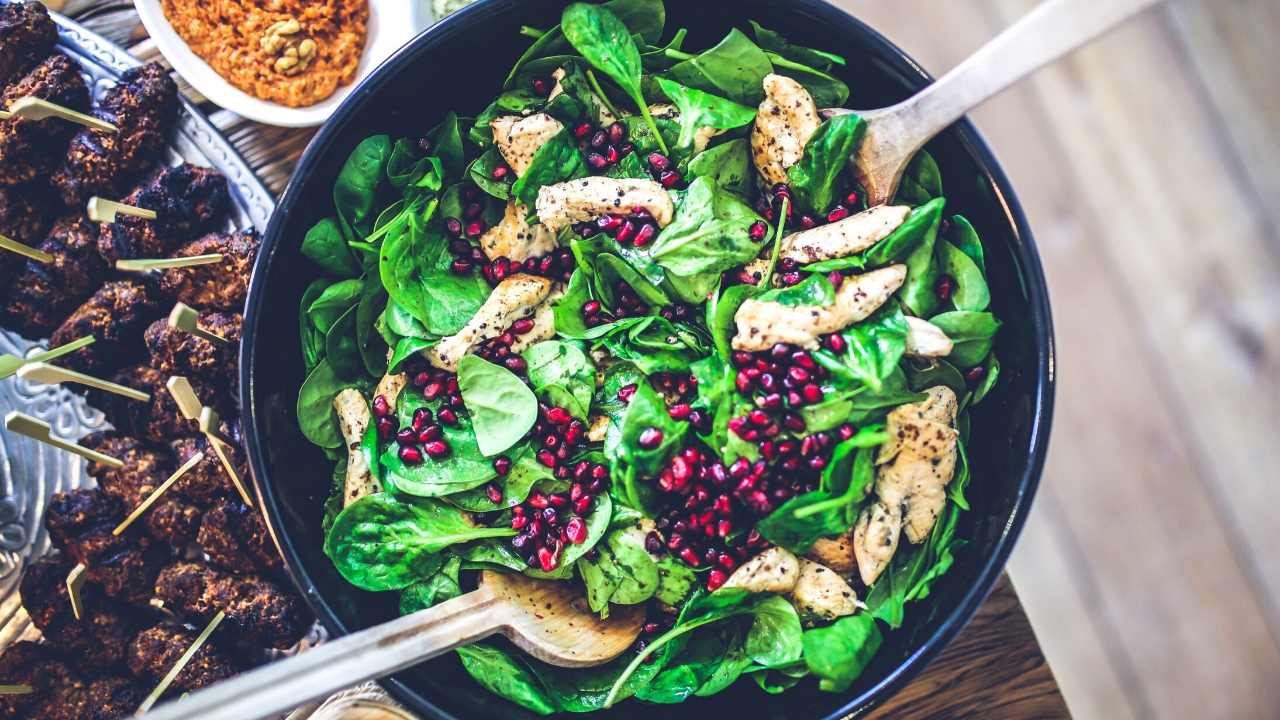 |
How Much Cholesterol in a DayHow much cholesterol in a day depends on a number of factors. While dietary cholesterol is not necessarily bad, excess intake can lead to serious.. |
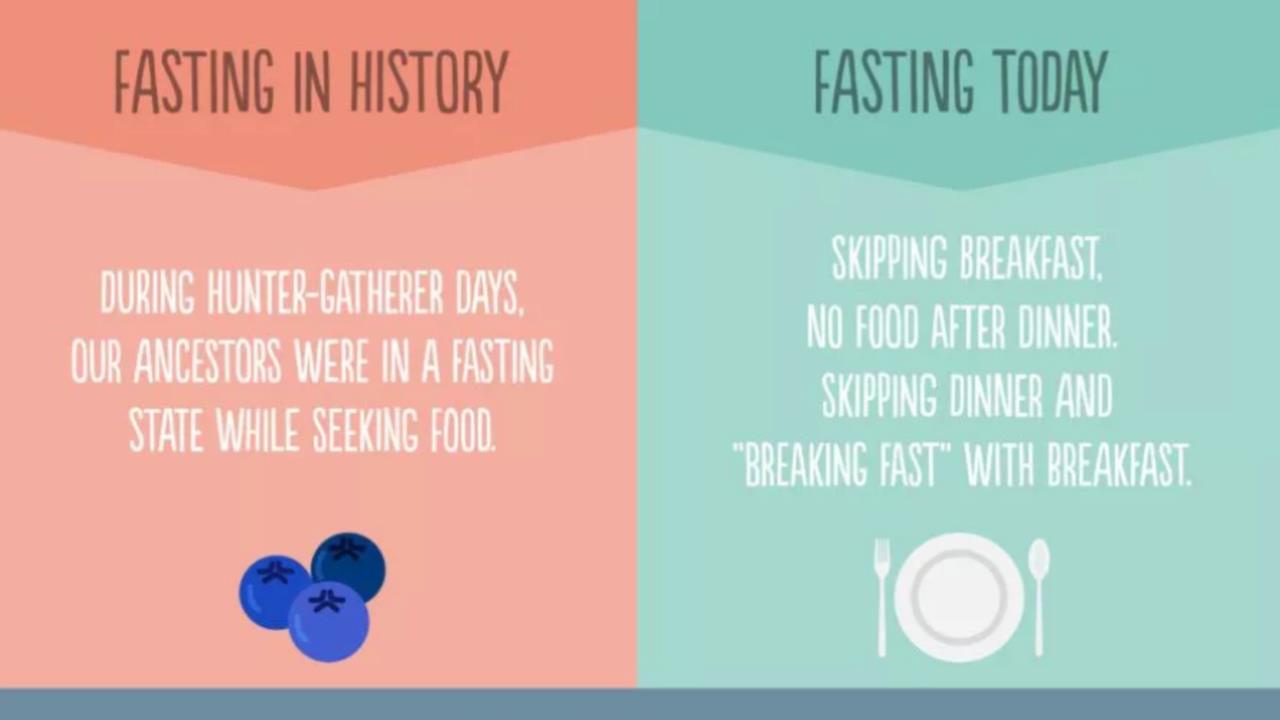 |
Is Skipping Breakfast Right For You?Skipping breakfast has a number of benefits, including the ability to lose weight, improve training performance, and increase growth hormone levels... |
 |
The Benefits of the AIP DietThe AIP diet has a number of health benefits. Besides reducing inflammation and weight, this diet also provides essential nutrients. These include.. |
 |
Is Eating Only One Meal A Day a Good Idea?Eating only one meal a day is not a good idea, and it is not sustainable for most people. It may help some people lose weight, but for the average.. |
 |
What Are the Side Effects of Water Fasting?Water fasting is a form of fasting, where a person consumes only water during a period of time. It may be undertaken for medical reasons or for.. |
 |
Intermittent Fasting and Blood PressureResearchers have discovered that intermittent fasting may have positive effects on blood pressure. Blood pressure affects the risk of heart disease,.. |
 |
Intermittent Fasting For Weight LossAll you need to know about Intermittent fasting and weight loss |
 |
Is it Okay to Drink Coffee on Intermittent Fasting?You might have heard that it's okay to drink black coffee on intermittent fasting. But did you know you can also enjoy a cold brew? What about.. |
 |
How to Start Fasting 48 HoursIf you are considering fasting 48 hours, here are some of the benefits. There are also a few precautions you should keep in mind before you begin. In |
 |
A Psoriasis Diet Can Help Reduce the Severity of Your PsoriasisA psoriasis diet should consist of eating foods that are rich in vitamin A and C, as well as avoiding sugars and processed foods. Avoid eating red.. |
 |
The DASH Diet to Prevent HypertensionThe DASH diet is an eating plan that was developed by the National Heart, Lung, and Blood Institute. It focuses on fruits and vegetables, low-fat.. |
 |
LIFE Fasting Tracker - LIFE Apps | LIVE and LEARNThe best, and free, intermittent fasting tracking app for iPhone and Android. Easy to use. Supports all fasting types. Fast with friends. Download for Free. |
 |
Intermittent Fasting AppsIf you're on an intermittent fasting regimen, it's important to keep track of your food and exercise intake. Several apps can help you stay on track.. |
 |
Time Restricted EatingIf you're interested in losing weight or improving your health, you may want to try Time-restricted eating or intermittent fasting. Read on to learn.. |
 |
Reactive HypoglycemiaThere are several different ways to treat reactive hypoglycemia. The first step is to reduce or eliminate your caffeine and alcohol intake. You may.. |
 |
Low-Carb Meal PlansLow-carbohydrate meal plans are based on limiting the amount of carbohydrates you eat. Instead, you replace foods that are high in carbohydrates with |
 |
Intermittent Fasting: What is it, and how does it work?Intermittent fasting involves switching between fasting and eating on a regular schedule. This type of fasting could manage your weight or even some forms of |
 |
How Autophagy WorksAutophagy is a dynamic degradation system that promotes tumor survival. It also promotes the growth of established tumors and facilitates metastasis. |
 |
The 12-Hour Fast - What Are the Benefits of a 12-Hour Fast?The 12-hour fast is a popular dietary approach that can help you lose weight. It forces your body to rely on its stored fats for energy. It has also.. |
 |
Fasting Before Working OutFasting before a workout has its advantages. Not only does it provide more energy during a workout, it can also help with digestion, which can take.. |
 |
Healthy Ways to Lose WeightLosing weight is a great way to improve your health and reduce your risk of certain conditions. It can also reduce your total cholesterol levels and.. |
 |
Intermittent Fasting 101 — The Ultimate Beginner's GuideThis is a detailed guide to intermittent fasting (IF). Studies show that it can help you lose weight, improve health and perhaps even live longer. |
 |
Top Intermittent Fasting AdvantagesThere are many advantages to intermittent fasting as a strategy for weight loss. Intermittent fasting can work with any diet... |
 |
Weight Loss (Low Carbohydrate Diets)Low carb diets have often been used throughout history for weight loss. Although sometimes called a fad, low carb diets have actually more science... |
 |
The Key Factors of Weight LossWeight gain and obesity, like any medical disease, is multifactorial. This means that there are many factors that cause weight gain... |
 |
How Doctors Lose WeightHow do doctors lose weight? For their patients, doctors often advise following standard diets, but when trying to lose weight themselves... |
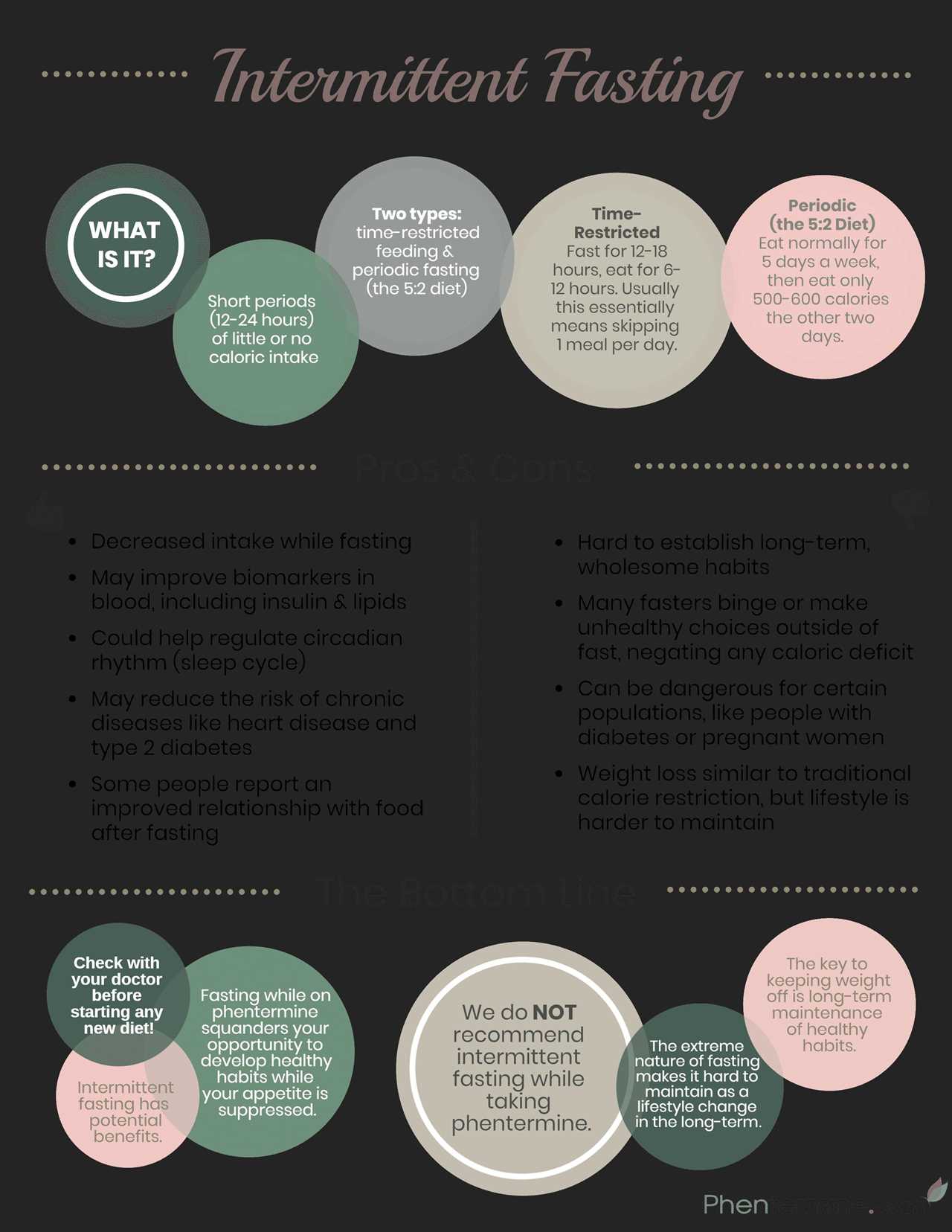 |
Is intermittent fasting good for you?Intermittent fasting isn't new, but it's gaining followers. What's the appeal? |
 |
Vacation Weight Loss PlanWhat is the best vacation weight loss plan? Most people [...] |
 |
Should I (lean-) Bulk or Cut?Should I (lean-) Bulk or Cut? |
 |
100lbs down!100lbs down! |
 |
Calculating the Maintenance calories on workout and rest daysCalculating the Maintenance calories on workout and rest days |
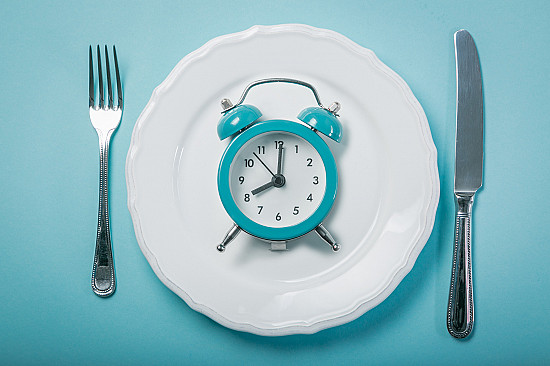 |
Intermittent fasting: The positive news continues - Harvard HealthHarvard research about Intermittent fasting ... |
 |
Rat Model: Intermittent Fasting Normalizes High Blood Pressure Induced by Harmful Intestinal BacteriaPrevious studies have shown that a harmful combination of gut bacteria can cause high blood pressure (hypertension) in humans and other animals. Having a |
 |
Your D-I-E-T Meditation PlaylistIn my TEDx talk, I suggest recasting the noxious word “diet” into D-I-E-T — a reminder to ask ourselves “Did I Enrich Today?” One of the ways we can enrich…The |
 |
Holiday Health (Damage Control)With the holidays on us, maybe your intermittent fasting schedule isn’t as rigorous as it once was. That’s not necessarily a bad thing, because social |
 |
You Got a Zero.Zero’s not been my hero. Through grade school and college, zeroes used to be something of a monster in my mind. Teachers illustrated just how bad a zero is |
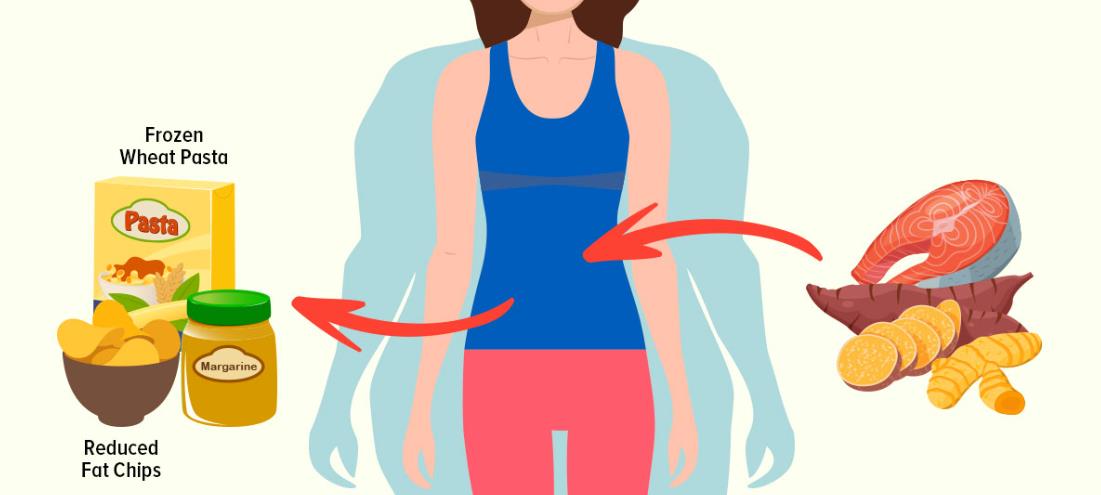 |
Six ways to do intermittent fasting: The best methodsIntermittent fasting is an increasingly popular diet option for weight loss. There are several programs, but this guide can help you find out which one is |
 |
Intermittent Fasting ExperiencesI took part in an energetic discussion of intermittent fasting experiences as part of the release of Women Action Takers Who Gained By Losing for which I wrote |
 |
How to Break a Fast: What to Eat After FastingHow to Break a Fast: What to Eat After Fasting Written by Stephen Anton PhD on May 15th, 2022 How to break a fast? This is an excellent question and one |
 |
How to Believe in Yourself: 10 Tips for Becoming Your Best SelfHow to Believe in Yourself: 10 Tips for Becoming Your Best Self Guest Post by William Anton PhD on June 12th, 2022 William D. Anton, Ph.D is a renowned |
 |
36-Hour Fast (Monk Fast): Everything You Need to Know36-Hour Fast (Monk Fast): Everything You Need to Know Written by Stephen Anton PhD on July 5th, 2022 The 36-hour fast is a challenging fast in that it |
 |
Diet A to Z: Intermittent FastingThe two-day-a-week diet: How intermittent fasting can help you lose weight and boost your health. |
 |
18/6 Intermittent Fasting: Is It the Right Plan for You?18/6 Intermittent Fasting: Is It the Right Plan for You? Written by Stephen Anton PhD on November 29th, 2022 Intermittent fasting has become one of the |
 |
20/4 Intermittent Fasting: The Pros and Cons of a Longer Fast20/4 Intermittent Fasting: The Pros and Cons of a Longer Fast Written by Stephen Anton PhD on January 25th, 2023 There are so many different approaches to |
 |
Everything you need to know about the OMAD dietThe one meal a day (OMAD) diet is a type of time-restricted eating intermittent fasting protocol that involves—you guessed it—eating just one meal a day and |
 |
The ultimate guide to intermittent fasting 20/4When we’re trying to lose weight, we usually think about what we can and can’t eat. Bye-bye beer and burgers. Helloooo carrots and kale! But with intermittent |
 |
The Flexitarian Diet — A Beginner’s Guide by SimpleFrom workouts to working hours, most of us enjoy a little flexibility. So it’s no wonder that when it comes to what we eat, a little wiggle room goes a long |
 |
The Mediterranean diet for weight lossPeople have loved the Mediterranean diet for many years. It’s not a “weight loss diet,” per se. It’s just how people in places close to the Mediterranean Sea |
 |
The complete guide to 18/6 intermittent fastingIntermittent fasting (IF) regularly shows up as many health-seekers’ go-to eating plan, and for good reason. Research suggests that it could have a profound |
 |
The Impact of Different Drinks during Intermittent Fasting: Benefits, Downsides, and ResearchA common dietary strategy called intermittent fasting (IF) alternates between periods of fasting and eating. Apart for water, black coffee, and tea, people |
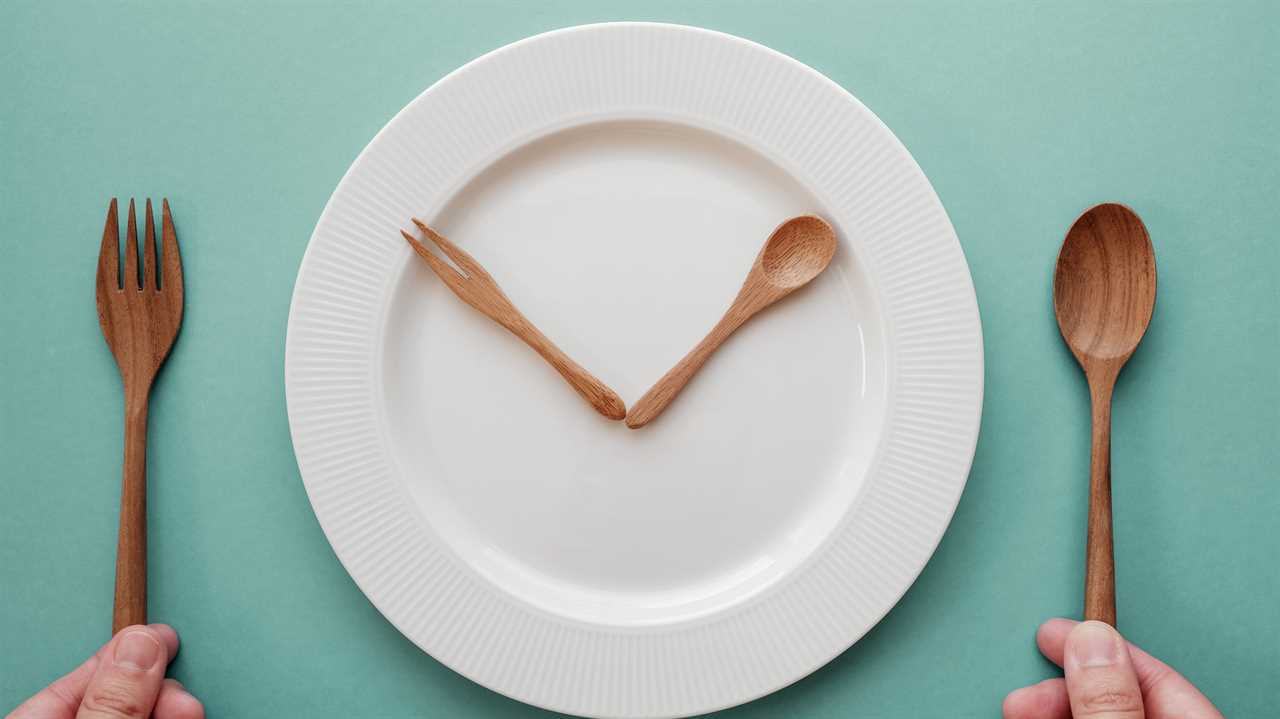 |
Intermittent fasting (IF): Your complete guide - Diet DoctorIntermittent fasting is popular, effective, and easy. This guide tells you how to get started with a successful intermittent fasting routine. |
 |
Intermittent Fasting and Muscle Gain: Benefits, Downsides, and ResearchA common dietary strategy for people who want to increase their muscle mass while also aiding fat loss is intermittent fasting (IF). Although IF has mostly |
 |
Burning Belly Fat: Intermittent Keto vs Intermittent Fasting – Which is More Effective?Visceral fat, commonly referred to as belly fat, is the fat that builds up around the midsection and is associated with a number of health issues, such as |
 |
When you’re ill, is intermittent fasting safe? Precautions and considerations.Those who want to reduce weight, get healthier, or even live longer are increasingly following the trend of intermittent fasting. Yet if you’re sick, you might |
 |
When Intermittent Fasting Stops Working: Reasons, Solutions, and EffectivenessRecently, intermittent fasting has become more well-liked as a technique to reduce weight, enhance general health and longevity, and even improve mental |
 |
5 Intermittent Fasting Methods, ReviewedIntermittent fasting comes in many shapes and forms. This article reviews its pros and cons so you can decide if it's worth a try. |

